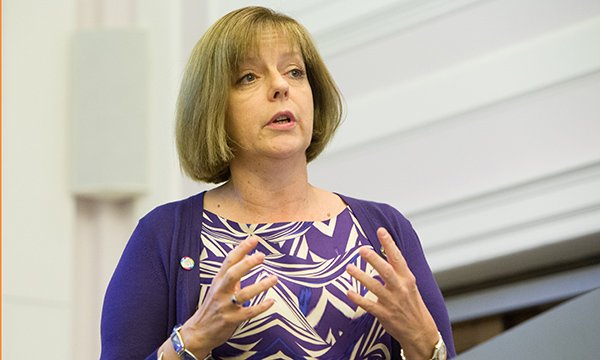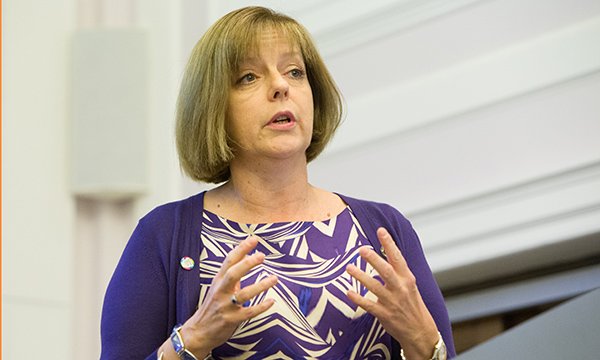Fast-track 'Nurse First' programme revealed

A new two year fast-track ‘Nurse First’ programme aimed at recruiting high-achieving graduates into a career in nursing and addressing the workforce crisis has been announced by NHS England.
From September, the first successful applicants from a 'related disipline' will be recruited on to learning disability and mental health nursing career paths – areas in nursing which are typically difficult to recruit for.
NHS England said it would expect to see applicants with psychology or biomedical sciences degrees, or from a pharmacy services background, but said there would be 'no specific' degree course entry requirement.
The Nurse First cohort will receive some funding and salary support for an educational course and hands-on experience and training as the scheme is initially piloted in three areas across the country, yet to be identified.
‘Ambitious and committed’ students will then be given the opportunity to enter a development scheme to rapidly progress their careers to leadership posts within five to seven years.

'to attract the best and brightest graduates' Picture: Barney Newman
Chief nursing officer for England Jane Cummings said the workforce needed to ‘grow and adapt to deliver high-quality care’ as services faced pressure from rising demand and more complex care.
Programme inspiration
The idea has been inspired by the postgraduate Teach First scheme – introduced in 2002 – which requires candidates to have a first-class or upper second-class degree in a subject taught in schools.
Professor Cummings said: ‘More people are training to join the NHS every year and we remain on target in terms of overall recruitment, although there are still gaps in our nursing workforce.
‘As a profession, nursing has always greatly benefited from the varied backgrounds and life experience of its staff.
‘It is vital we continue to attract the best and brightest graduates, offering additional entry routes and career opportunities, so that we can continue to deliver specialist, high-quality care for all.’
'Critical shortage'
The plans have been announced in a report on the next steps for the NHS Five Year Forward View, a programme which began two-and-a-half years ago to address the future of the NHS.
RCN general secretary Janet Davies welcomed the news, saying there was a ‘critical shortage’ of nurses in the NHS, with unsafe staffing levels putting high-quality patient care at risk.
Ms Davies said: ‘Measures to increase the number of registered nurses are welcome and the Nurse First initiative is a positive way to attract talented graduates.
‘Nursing is a hugely rewarding, complex and responsible profession.
‘It is crucial to focus on retaining nurses who are deciding to leave and offer flexible employment to encourage people to return to nursing in the NHS.’
More specialist nurses
NHS England national director for mental health Claire Murdoch, who is a mental health nurse, said: ‘I am delighted to see that the Nurse First programme will provide more specialist mental health and learning disability nurses.
‘They offer some of the most challenging but highly rewarding roles and provide crucial care and support to some of our most vulnerable.’
Professor Cummings is also going to continue work championing a new scheme, first announced to RCNi last month.
This programme is aimed at raising the profile of nursing and bringing together existing and future work promoting the image and pride in nursing and midwifery.
In addition, a new drive to target high nurse retention rates, run by NHS Improvement and NHS Employers, will support the 30 trusts with the highest turnover.
This will provide around 4,000 more nurses each year, according to NHS England.
Healthcare initiatives
Other actions to help support the nursing and midwifery workforce include:
- Education – Health Education England is to work with universities to ensure the number of people being trained as nurses and midwives continues to grow (averaging 15% for the past three years).
- Return to practice – There are more than 50,000 registered nurses in England not currently working for the NHS and up to 2,000 nurses will be supported to return to work over the next two years.
- General practice nursing – A ten-point plan for practice nurses will be published in April helping them to further demonstrate their leadership and value in primary care.
Further information
In other news

